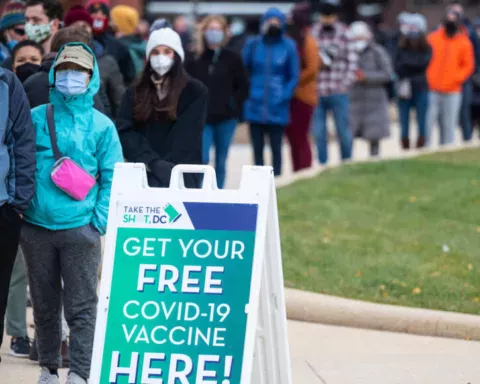Ulaanbaatar, Mongolia – It all starts with a call. Distressed women and children report incidents of domestic violence to the dedicated hotline 107 or the police hotline 102. Calls are then referred to the local police unit, which assesses the safety risks, and visits the household to check on the family.
Depending on their needs, victims are given counseling, or moved to shelters. If they want to know their legal options, the women can also call the National Legal Institute (NLI). Women can also call the helpline of the NGO National Center Against Violence (NCAV) for psychological counseling, legal help and shelter.
Both services, however, are only available from 8 a.m. to 5 p.m. Data shows distress calls peak from night to dawn, especially during the winter.
“Aside from its severe economic impacts, the COVID-19 pandemic has had a strong impact on domestic violence in Mongolia,” said ADB Social Development Specialist Veronica Mendizabal Joffre. “With a new ADB technical assistance—ADB’s first focusing on increasing access to support services and prevention of domestic violence during a crisis—we aim to maintain critical response mechanisms for domestic violence and enhance preventive action.”
The TA is estimated to cost $440,000 of which $400,000 is financed on a grant basis from ADB’s Technical Assistance Special Fund. The TA further complements an ongoing grant project on Combating Domestic Violence Against Women and Children, financed by the Japan Fund for Poverty Reduction with $3 million.
Improving reporting behavior
The crisis has had a strong impact on gender-based violence, as the number of cases and women resorting to shelters has increased significantly. Police and NGO-run helplines report an increase in calls of 19% and 30%, respectively. Women constituted 93% of the victims and about 90% of the crimes were committed in a household setting.
Reduced mobility during the quarantine period and social distancing measures have resulted in victims of domestic violence having reduced options for support and counseling. It is likely that many have been forced to remain at home with perpetrators.
Based on consultations with police and women in distress, many victims choose to remain silent and do not seek help despite established mechanisms for reporting domestic violence. Many are afraid of damaging the reputation of their families. Many women also refrain from reporting fearing the arrest of their spouses who are often the household’s breadwinner. Domestic violence survivors and their families are also often unaware of where they can obtain legal and psychosocial information, assistance or file a complaint.
To address these challenges, ADB is launching a multimedia communications campaign to improve reporting behavior. Women and children are shown when to report, where to call, and where to ask for help.
The communication campaign will drive traffic to the new digital platforms and lead those at risk of violence to the options accessible to them — depending on their digital capacities — including chatbots, mobile applications, private chat groups, websites (i.e., the NCAV and NLI websites), social media pages, and other channels where they can download information.
Making the system more responsive and resilient to COVID-19
ADB’s emergency COVID-19 support is making the national domestic violence response mechanism resilient to pandemics and other crises.
Relying solely on phone-based hotlines, which at present are unable to take multiple calls, limits the possibility of victims of reaching services during the quarantine period since they tend to be staying in-doors in close proximity of perpetrators.
Thus, chatbots are being built in the websites of the NLI and NCAV, to make services available 24/7, especially at the dead of night when women need help most. The websites are also being revamped so they can be easily accessed for specific information and referral.
ADB is also helping government build a central database so all calls are documented whether they are from the domestic violence hotline 107, police hotline 102, legal call center, NGO hotline websites, or chatbots. A privacy protocol is built in to protect women’s identities.
ADB is also supporting domestic violence response operations and shelter capacity in procuring goods such as basic PPEs and first-aid kits, to increase the capacity of shelters. Frontline service providers are also taken care of, with virtual training on mental health and stress management.






